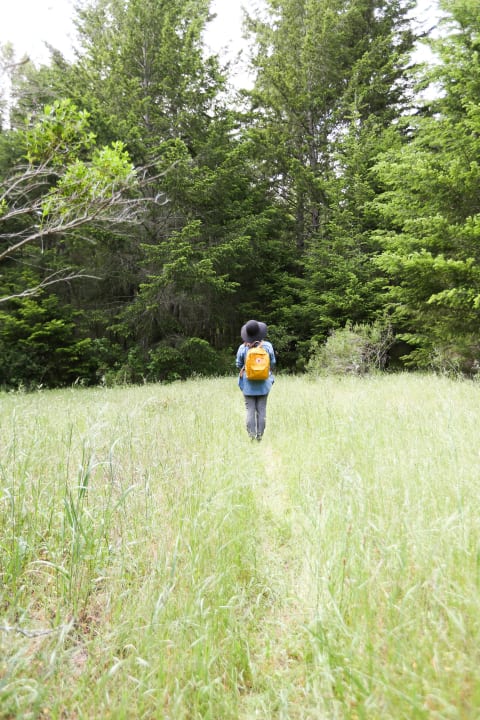Advertisement
Want To Stay Well-Rested Through All Your Summer Adventures? Here's How To Get A Good Night's Sleep

We all know what it feels like to be sleep-deprived: nonstop crabbiness, brain fog, and a likelihood to reach for junk food over healthy snacks. If this sounds like you most days of the week, you’re not alone—according to the CDC1, one in three adults don’t get enough sleep.
Unfortunately, not clocking those coveted seven to nine hours can have negative health consequences, from not getting as much joy out of life (and who wants that in the summertime?) to higher disease risk. But getting enough sleep is harder for a lot of people than it should be, so here are five doctor-approved tips to help make it happen:
1. Eliminate screens an hour before bedtime.
All that scrolling through your Instagram feed for hours on end is doing more than draining your phone battery: It’s stopping you from winding down before bedtime. One study found that using social media before bedtime2 is linked with sleep disturbance, and other research has found that the blue light your screen emits disturbs the body's natural sleep-wake cycle. So try putting all screens away at least an hour before bedtime and picking up a book instead.
2. Get more exercise.
Regular exercise is linked with improved mood, lower risk of disease, and yes—higher-quality sleep. If you’re not getting enough shuteye, try getting the recommended 150 minutes of exercise per week3 and see if it makes a difference. To break it down for you, that’s just 21 minutes a day. You’ve got this!
3. Support your sleep.
When it comes to sleep, the right support can go a long way. Nature Made Good Sleep gummies, for example, are an excellent way to help you get a good night’s rest. Made with melatonin and L-theanine, these gummies can help you fall asleep and rest well.† As a nice bonus, they’re pretty delicious.
4. Spend time in nature.

Not only is nature restorative and healing, but research shows that spending time in the sun soaking up that vitamin D (especially early in the day) is an excellent way to remind your body of when it should be awake and when it should fall asleep. In other words, nature is a great way to reset your sleep-wake cycle, so now that the weather’s warm, consider going for a weekly hike.
5. Try to go to bed and wake up at the same time every day.
Sleep schedule all over the place? That could be why you find it so hard to fall asleep at night and wake up in the morning. If your body isn’t on a set schedule, it won’t know when it’s time to start powering down. So try setting an alarm to alert your body when it’s time to go to bed, just as you set an alarm to alert it when it’s time to wake up. Once you’re on a more regular schedule, you’ll likely find sleeping through the night a lot easier.
